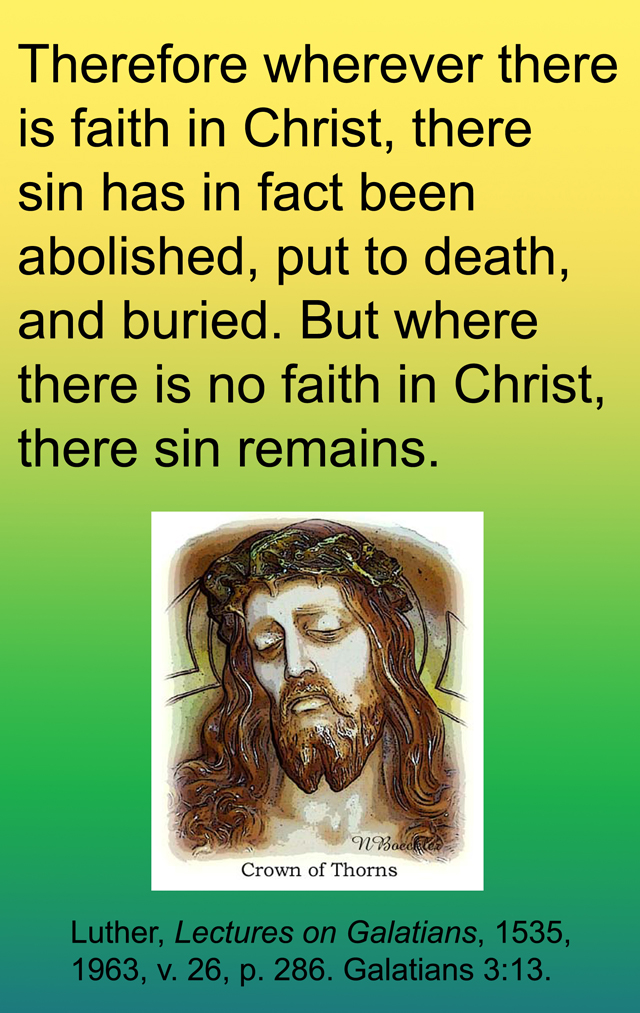 |
Borrow $50,000 to become a professional diaper-changer?
I don't think so! |
MLC receives Challenge Grant | Wisconsin Evangelical Lutheran Synod (WELS):
Martin Luther College (MLC), New Ulm, Minn., is reporting a generous outpouring of support for its Let the Children Come campaign aimed at funding a new 15,500-square-foot Early Childhood Learning Center on campus. To further the campaign efforts, a group of donors are presenting $1.25M to MLC as a challenge grant. Through June 2013, donors will match gifts for Let the Children Come dollar for dollar up to $1.25M.
MLC President Mark Zarling says, “The donors offer this contribution as a celebration of the blessings the Lord has granted to young souls touched by early childhood education (ECE) ministries and as a strong encouragement to fellow WELS members to participate in this important ministry partnership.
“With the rapid growth of ECE ministries across WELS the past several years, it is essential that MLC provide a strong number of well-trained ECE graduates,” Zarling adds. “Let the Children Come is the campaign designed to support this important training. There are three goals for the campaign: funding a new Early Childhood Learning Center, providing continuing education opportunities for early childhood educators in the field, and establishing financial assistance for both undergraduate students and continuing education for current ECE teachers.”
Because renovation of the present facility was determined to be too costly, the MLC Governing Board approved the construction of a new center as soon as funds are available. The tentative timeline calls for demolition of the current building and the start of new construction in spring 2013.
To ask questions or discuss how you might participate in this challenge grant, contact Jon Scharlemann, MLC vice president for Mission Advancement, at 1-877-MLC-1995; or WELS Ministry of Christian Giving at 1-800-827-5482. For more information regarding this project visit
'via Blog this'
***
 |
| Kudu Don Patterson's staff |
GJ - Churches used to become theaters and homes when they died. Now they are turning into daycare businesses. Martin Luther College's last gasp at relevance is turning out cadres of day-care professionals, with degrees in diaper-changing and proper burping methods.
Start them young and they will grow up to be mindless WELS robots.
Mrs. Ichabod just said, "Most of the kiddies are not Lutheran and will never join the congregation. It's just a baby-sitting service to create some jobs for the pastor's wife and friends."
I countered, "But this is just an ideal money-maker. WEL$ is all about money. It's win/win."
Mrs. I. responded, "They have to cut their rates to compete with the other dying churches' daycare businesses. The congregation is giving offering money to their daycare to support non-member mothers working instead of raising their own children. It's lose/lose."
---
solafide (
http://solafide.myopenid.com/) has left
a new comment on your post "
New
Ministry - Turn Your Church into a Day-Care Bu...":
Mrs. Ichabod is
correct. Most WELS preschools/ECE programs are a drain on congregation
resources, even the few that are "self-sustaining," meaning that the teacher's
salary is paid for (these are a rarity - since even in most K-8 Lutheran
Elementary Schools the teachers' salaries are subsidized by the congregation
because if it had to be 100% supported by tuition, it would price everyone out
of the school), are a drain on resources because of the low numbers of members
who join the church because of the preschool. Knocking on doors and talking to
people has a better chance of gaining a member.
It really is a
babysitting service subsidized by the congregation. Can you reach the little
souls with the Word, sure, but if you read most mission statements for these
places, the primary purpose is to grow the congregation. They are failing.
***
GJ - I checked with one well connected pastor in WELS. He said that the daycare business ruins congregations just the way you described, Sola. The congregational budget is drained and the parish is polarized.
Daycare becomes the sacred cow that no one can touch. No one can see the real budget - top secret.
---
bruce-church (
http://bruce-church.myopenid.com/)
has left a new comment on your post "
New
Ministry - Turn Your Church into a Day-Care Bu...":
The big talk at
MLC is the natural gas and oil boom in North Dakota, which has caused a
desperate shortage of teachers. You'll recall that most teacher graduates don't
receive calls to WELS schools, so they either get their masters at a state
college (or the online masters program from MLC). Then they look for a job
elsewhere, BUT it's tough for teachers to get jobs now given the economy and how
many teachers have lost their jobs. So many are thinking of getting a teaching
job in western N Dakota since that oil patch is so big they'll be drilling away
for 50 years. After 50 years though they might have a ghost town in places like
Williston:
In N.D., Oil Boom Brings Student Boom and Schools Struggle to
Accommodate:
http://www.pbs.org/newshour/bb/education/july-dec12/northdakota_09-27.html
http://www.pbs.org/newshour/rundown/2012/09/williston-area-schools-suffer-bus-driver-shortage-on-first-day-of-class.html
http://www.washingtontimes.com/news/2012/jul/8/oil-towns-prosperity-spurns-teachers/
Where
the oil
is:
http://grist.files.wordpress.com/2012/06/screen-shot-2012-06-08-at-9-41-45-am.png
http://www.nytimes.com/2012/07/26/opinion/collins-where-the-jobs-are.html
Unfortunately,
many are greedy and are only interested in the quick profits of oil, so the
natural gas is just flared
off:
http://www.nytimes.com/slideshow/2011/09/14/business/energy-environment/flare-ss.html?ref=energy-environment
---
bruce-church (
http://bruce-church.myopenid.com/)
has left a new comment on your post "
New
Ministry - Turn Your Church into a Day-Care Bu...":
DayCare Centers
support the societal idea of women having only one or two children. Most people
can't afford to have three children in child care since daycare would then cost
more than their take-home pay. Some people have likened daycare to abandoning
children to an orphanage.
Religious women ought to have at least three
children, I think, if the couple is healthy and the man has a decent job. This
would require the woman staying at home until the last child is out of
kindergarten, and then having only a part time job until all the kids are pretty
independent. After all, religious men and women are remembered for how many
children they raise successfully to support the church and society, not for how
much they made during their lifetime.
















